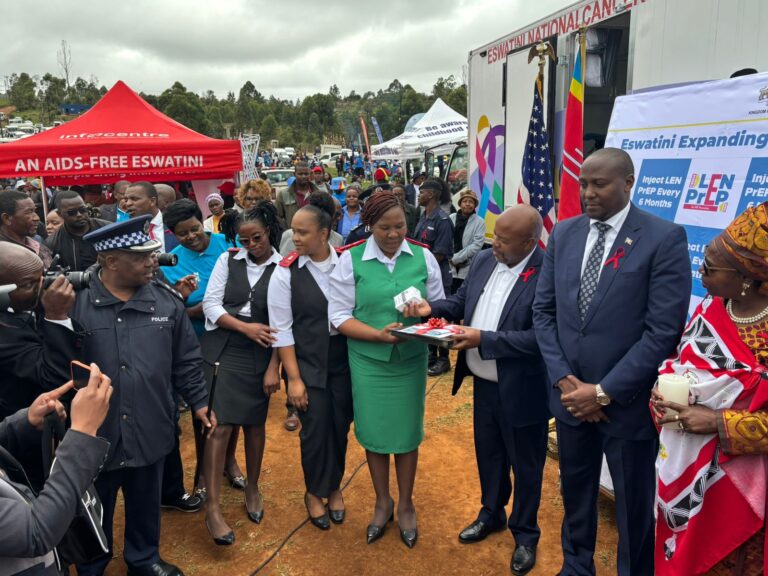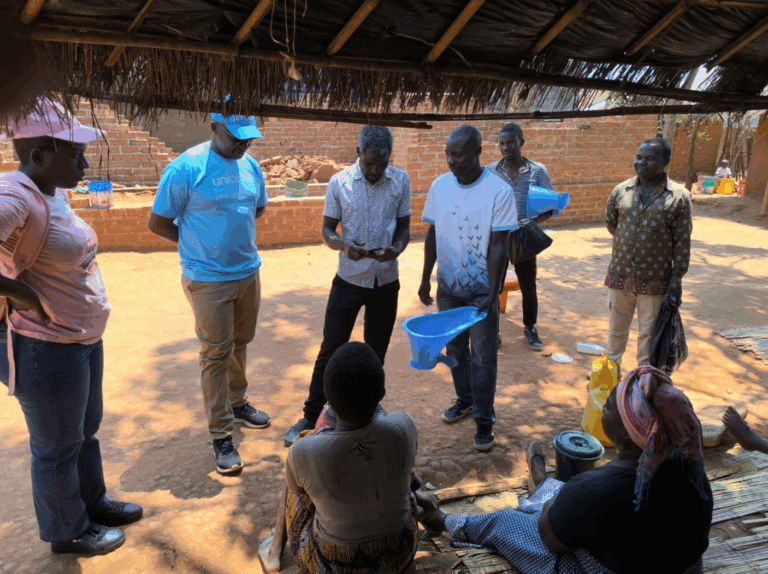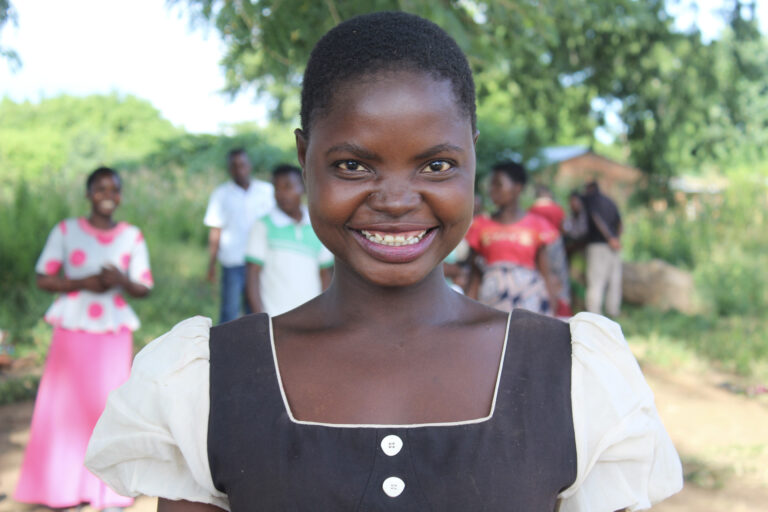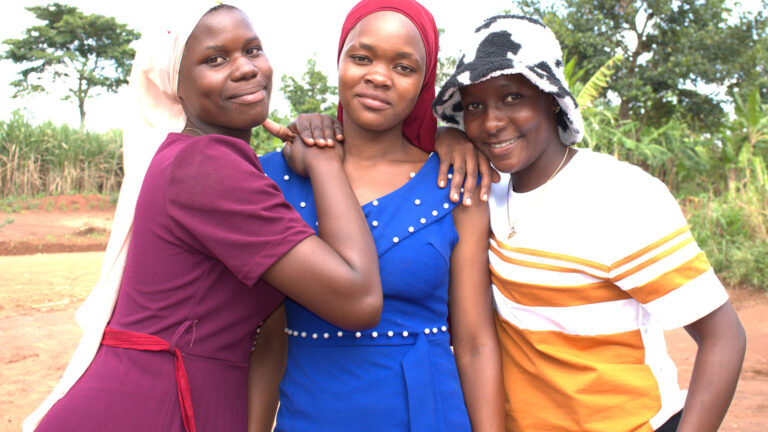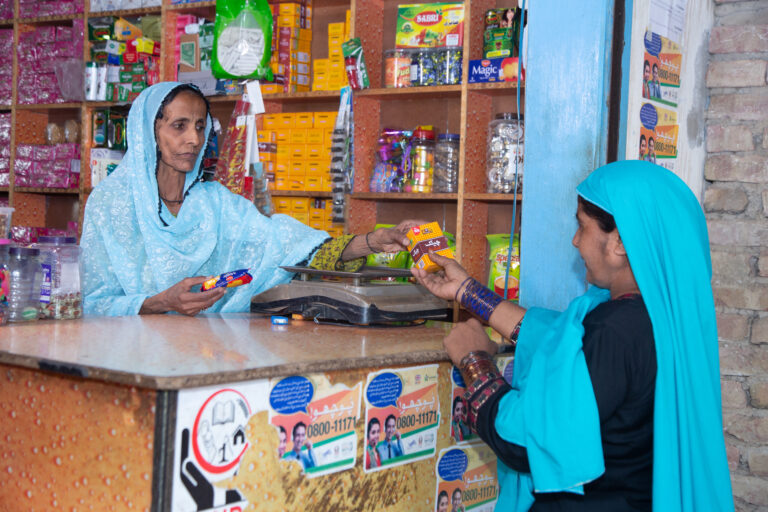By Luis Mahumane, Project Coordinator, PSI Mozambique and Maya Schane, Princeton in Africa Fellow, PSI
Proactively reaching community members where they reside rather than waiting for them to seek care strengthens the ability of health systems to extend coverage to those who need it most, particularly rural and high-risk populations. In Mozambique’s Sofala Province, nurse Zuaguma Salomé Chingore and community health worker (CHW) Manecas Louis Muananduaco provide essential services to prevent malaria in their communities. As we celebrate World Health Worker Week, their stories highlight the diverse responsibilities and integral roles of health workers in ensuring the success of interventions like perennial malaria chemoprevention (PMC), which helps prevent malaria among children under two.
The Unitaid-funded Plus Project, led by Population Services International (PSI), champions the adoption and scale-up of PMC across four focus countries: Benin, Cameroon, Cote d’Ivoire, and Mozambique. By leveraging existing health system infrastructure, the project supports the integration of PMC into routine childhood vaccinations using sulfadoxine pyrimethamine (SP), an effective and affordable medicine used to prevent malaria. PMC is delivered alongside vaccinations, vitamin A supplementations, deworming medicine, and micronutrient powders during routine healthy child consultations. Over 2,700 providers and CHWs have been trained to educate, raise awareness on, and deliver PMC.
BRIDGING THE GAP THROUGH COMMUNITY ENGAGEMENT
Louis lives and works in Bopire, a small village in Sofala Province. His job is to identify and support mothers whose children are behind on their vaccinations. Through community workshops and door-to-door visits, he imparts vital information about PMC. Louis further connects community members with essential services, guiding them to health centers for comprehensive healthy child consultations. Louis recognizes the significance of his role as an essential link in ensuring that his community receives preventive care. This excitement is also shared by clients like Muzamusse Joaquim Luis, a client referred by Louis to the health facility so her child could receive PMC.
“I am going home happy because my child received treatment to prevent malarial,” says Muzamusse.
Families benefit from his efforts by gaining both resources and knowledge to effectively combat malaria and promote preventive healthcare.

CARE DRIVEN BY COMPASSION
Salomé is a dedicated nurse at the Guara Guara Health Center located within Mozambique’s Buzi district. Salomé says it was her childhood dream to care for and treat people in her community. Today, she feels fulfilled knowing that she is doing what she always dreamed of with love and dedication. Within the framework of PMC implementation, she plays an important role. During routine healthy child consultations, nurse Salomé and her colleagues diligently assess the children, monitoring their weight and temperature, and administer vaccinations. At these appointments, she also administers SP for PMC, effectively safeguarding the children from malaria.
“Thanks to the work providers do and the innovation of interventions, diseases that are preventable through vaccines and other strategies occur less frequently,” says Salomé. “This makes me feel very motivated to continue helping people, especially children, so that they grow up healthy and become the adults of tomorrow who will continue the country’s development activities. This encourages me to take more actions to guarantee the health of my community.”
The efforts of health workers like Salomé and Louis underscore the crucial role of frontline healthcare providers in implementing life-saving interventions like PMC. By investing in training, resources, and support for essential health workers, we can continue to strengthen healthcare systems and build healthy, resilient, and malaria-free communities around the world.

About the Plus Project:
The Plus Project, funded by Unitaid and led by Population Services International (PSI), plays an important role in the fight against malaria and anemia among children. By integrating PMC with routine vaccinations and vitamin A supplementation visits, the project aims to reduce the malaria burden in endemic countries including Mozambique, Benin, Cameroon, and Côte d’Ivoire. From March to December 2023, the Plus Project administered over 175,000 doses of SP for PMC throughout Mozambique’s participating health facilities.
For more information about the Plus Project, please contact the project’s Director Charlotte Eddis at [email protected]. Additional resources about the project, including our gender approach, are available on the project website: https://www.psi.org/project/plusproject/.

